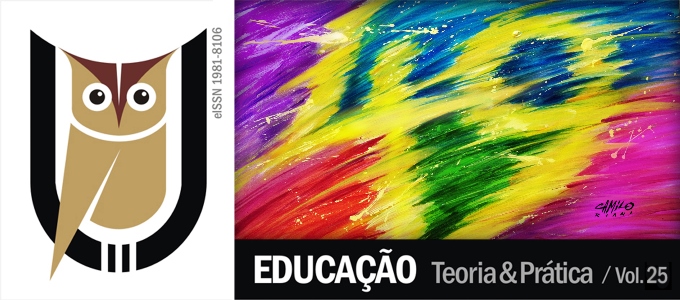Female protagonism and emotional relationships experienced during recess in Elementary School: discussing teachers’ discourses
DOI:
https://doi.org/10.18675/1981-8106.vol25.n49.p268-281Keywords:
Gender Studies, Discourses, Heteronormativity, Affective protagonism, Recess.Abstract
The article aims at discussing issues of gender and sexuality present in discourses of Elementary School teachers about the personal relationships experienced by girls from a public school in a ghetto with classmates of more advanced classes during recess. The survey was conducted through focus group methodology with the participation of twelve teachers. The teachers, through their discourses (produced by a network of institutions and cultural artifacts), constitute truth regimes that operate in the governmentality of students’ behavior. From the analyses, it is possible to highlight that the teachers’ discourses aim at regulating the students’ modes of being, acting and living together. To do so, these discourses show a vocabulary that distinguishes the expected behavior of girls and boys, hoping that the former experience their femininity in a heteronormative standard. Therefore, it is concluded that the heteronormative discourses in the school context should be discussed, so that schools can contribute to overcoming inequalities, introducing in the curriculum and in everyday practice the questioning of all and any forms of gender discrimination.Downloads
Additional Files
Published
How to Cite
Issue
Section
License
Authors who publish in this journal agree to the following terms:
a) Authors assign copyright to the journal, with the work simultaneously licensed under the Creative Commons Attribution License that allows sharing of the work with acknowledgment of authorship and publication in this journal.
b) The policy adopted by the Editorial Committee is to assign copyright only after a period of 30 months from the date of publication of the article. After this time, authors interested in publishing the same text in another work must send a letter to the Editorial Committee requesting the release of the assignment of copyright and wait for a response.
c) This journal provides public access to all its content, since this allows greater visibility and reach of published articles and reviews. For more information on this approach, visit the Public Knowledge Project, a project that developed this system to improve the academic and public quality of research, by distributing OJS as well as other software to support the public access publication system to academic sources. The names and email addresses on this website will be used exclusively for the purposes of the journal and will not be available for other purposes. This journal provides open any other party  This work is licensed under a Creative Commons License
This work is licensed under a Creative Commons License











